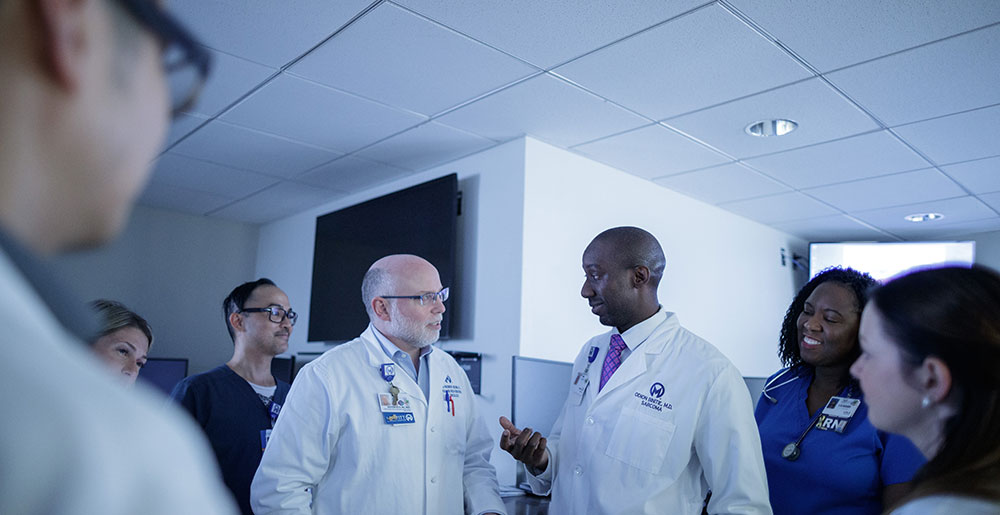Head and Neck-Endocrine Program’s Multidisciplinary Model Offers Patients Enhanced Treatment

The Head and Neck-Endocrine Oncology Program at Moffitt Cancer Center offers a multidisciplinary model that involves specialists from various fields seeing a patient simultaneously and collaboratively to provide comprehensive care. For patients seen in the Head and Neck clinic, this might include appointments with surgeons, radiation oncologists and/or medical oncologists. In the Endocrine clinic, these specialists along with endocrinologists see the patient together to address conditions related to endocrine cancers.
What are the benefits of multidisciplinary programs for patients?
- Comprehensive Care: Patients receive holistic care as a team of experts from different specialties collaborates on their treatment plans.
- Efficient Treatment Planning: The collaborative approach facilitates quicker decision-making and treatment planning, leading to more timely interventions.
- Reduced Delays: By having all specialists involved in the same meeting, potential delays in communication or waiting for individual appointments are minimized.
- Improved Outcomes: The coordination among specialists can lead to more effective and tailored treatment strategies, potentially improving patient outcomes.
How does a multidisciplinary model benefit providers?
- Enhanced Communication: Regular meetings among providers foster better communication, allowing for a more cohesive and coordinated approach to patient care.
- Shared Expertise: Providers can benefit from the collective expertise of colleagues from different specialties, leading to a more well-rounded understanding of complex cases.
- Professional Development: Collaborating with professionals from diverse fields provides ongoing opportunities for learning and professional development.
How does this differ from patient care at other institutions?
Not all institutions may follow a multidisciplinary model for every patient. In some places, patients may need to schedule separate appointments with specialists, which can lead to longer wait times and potential communication gaps.
What is in store for the future of the Head and Neck-Endocrine Oncology Program?
The future of the Head and Neck-Endocrine Oncology Program could involve further refinement of the multidisciplinary model, integration of cutting-edge technologies and continuous improvement in patient outcomes. This might also include expanded research initiatives, advancements in personalized medicine and ongoing collaboration with other healthcare institutions.
If you’d like to refer a patient to Moffitt, complete our online form or contact a physician liaison for assistance. As part of our efforts to shorten referral times as much as possible, online referrals are typically responded to within 24 - 48 hours.
